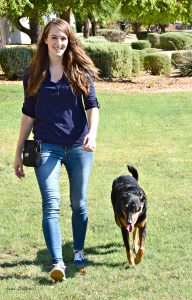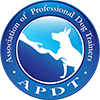
What’s the best way to bring a new dog into my household?
I am a proud hu-mom to a total of five critters, four of whom live full time in my house. I have three dogs, a horse and a cat (who hasn’t decided on his official species designation.) Through my career as a trainer I’ve spent countless hours working on bringing a new dog into my household.
I have always had success with incorporating new animals, and it isn’t only because I’m a professional.
The secret to bringing a new dog into your household is simply, being properly prepared. In today’s world, families are as dynamic as the weather. Children moving back in with parents, dating couples just starting out with their first home, or blended families learning how to peacefully cohabitate…are just a few examples of situations where dogs must learn to live together with other dogs.
No matter your life situation, these 10 tips can help ensure any new puppy additions happen smoothly.
Consider the entire family when deciding on a new member
Once the decision has been made about where this new dog is coming from, consider the ages of the household and how this new energy will impact the pups and people already living there. A puppy can breathe new life into a senior dog, or be a source of constant agitation. The impact the new dog has on your established pets will depend a lot on your preparedness. You need a plan in place to make sure everyone can get along through the various growing pains. One of the best ways to make sure everyone gets along is to take time to make your decision, meet the new puppy or dog several times, and have them meet your entire family before coming home.
Choose a neutral environment for the introductions if you can
This will look different depending on the age and temperament of the dogs involved. If you have a dog who is unsure of new dogs, having the dogs meet in an environment your dog already enjoys may be a good option. Your front yard or somewhere in the neighborhood can work too, just try to eliminate extra stresses like barking dogs or noisy yard work. With a new puppy who needs to be careful until fully vaccinated, meeting in the backyard usually works.
Make your environment as successful as possible
This may mean removing items that your current dog or the new dog might become possessive about. Pick up dog toys and chew bones before giving the new member a chance to explore with their new housemates.
Spend time bonding with all of the dogs in your house
Giving each dog one-on-one time will help keep your relationship strong, making the transition of sharing you much easier.
Find something everyone enjoys
This could be playing fetch, or even getting belly rubs. Having a dog watch another dog enjoy an activity shows them that dog is fun.
Play the name game
Teach each dog what their name is, and make it clear who you are talking to and rewarding.
Don’t be afraid to keep the new dog on-leash
Yes, even inside the house when you aren’t going anywhere or doing anything except living in your house. By keeping the new addition close by and having them follow you around for a few days, you are showing them exactly HOW to behave in your house. You are right there to redirect them from behaviors you’d rather they didn’t do, and most importantly reward them for good behavior and good choices.
Play it safe initially
Even with a new puppy, it’s a good idea to make sure feeding time goes smoothly and no one feels crowded. Feed your new dog or puppy in an enclosed space such as their kennel, but where the dogs can still see each other if it’s safe to do so. Establish your normal routines early on, and have the new dog follow the feeding routine you already have in place.
Go for walks together
Dogs love to travel together, and this is one of the ways they establish bonds. Even with a puppy who cannot yet go for walks, you can practice walking together in the backyard, which will help make walks more fun when you do venture out the front door.
 Work with a professional trainer or behaviorist
Work with a professional trainer or behaviorist
A professional trainer can help you evaluate the pets in your home, and the temperament of any new potential additions. They can suggest specific positive reinforcement training to help you navigate this new addition.
If you have questions or need assistance evaluating or bringing a new dog into your household, please give us a call. We can help!
602-237-6775




Leave a Reply